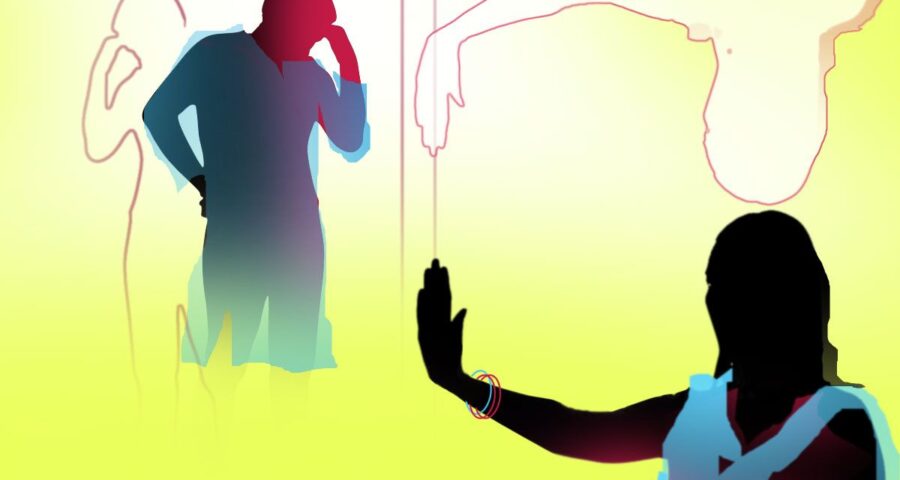When things don’t materialise the way toxic people want them to, they may try different ways to control you.
A toxic relationship can completely batter you as a human being.
It can destroy your sense of self.
But can a toxic person change?
And what about the person who is in a toxic relationship?
Relationship experts recommend coping strategies and tips that will help one repair, and recover from, a toxic relationship.
*According to relationship expert and transformational coach Dr Ashish Sehgal, cases of toxic relationships are reducing in India.
“You may be reading about these cases because of the exposure. But in the last 20 years of my career, I have seen toxicity (in relationships) reducing, especially in cities.”
The reason is simple, says Dr Sehgal.
“Earlier, these things did not matter in relationships because most people were not aware.
“Younger couples are now standing up for themselves. Cases of physical abuse and domestic violence have reduced drastically due to awareness and literacy.”
- Need relationship-related advice? Ask rediffGURUS HERE.
The basis of any toxic relationship is mistrust or the inability to cope with the emotions and stress that come with being in a relationship.
“Why does someone want to control? We try to control other people and situations when we are not able to control ourselves or our behaviour.
“Men do it because of patriarchy or cultural conditioning. As a culture, Indians are not taught to respect boundaries or space. People struggle to compartmentalise their emotions.
“Women behave in a certain way because they feel they should. When a pattern of these kinds of behaviours reaches dangerous levels, relationships start to break,” explains Dr Sehgal.
As you get a better grip on yourself, these behaviours will automatically correct themselves.
*Another reason why young couples may be experiencing unfavourable behaviour, according to mental health expert Anu Krishna, is a general lack of patience and the increasing need for instant gratification.
“You have to remember that relationships don’t grow on their own. They need to be nurtured with love and care,” says Krishna.
She also reminds us why toxicity in relationships is a grey area.
“We are also seeing cases where people falling for ‘cancel culture’; they are quick to pass judgements based on gossip and limited information.
“Due to this, a number of genuine cases get sidelined or lose momentum.
“Instead of always blaming men, it might help if we change our perspective and acknowledge that women also play the victim card at times while accusing men.”
The bias is so obvious, says Krishna, that, as a society, it is always easier to blame the man in the relationship.
“What about clingy behaviour? When women fail to respect space and boundaries, it is equally damaging,” says Krishna.
*Irrespective of gender or bias, experts feel timely intervention will help individuals identify and fix certain unhealthy patterns of behaviour.
According to Dr Sehgal, individuals who seek professional help can, with love, compassion and empathy, successfully move from a sense of entitlement to a sense of responsibility.
Mental health experts and relationship coaches recommend that you remember the following tips while you deal with someone displaying toxic behaviour.
What you must know if you are dealing with a toxic partner/relationship
- If someone is repeatedly displaying toxic behaviour, you must stand your ground.
It’s important to be truthful and acknowledge that something/ someone is not okay. - If you know someone who is displaying toxic behaviour, avoid discussing it with a friend.
Talking to friends, according to experts will only lead to gossip and conflicting opinions.
Instead, you must seek the help of a professional who can help you identify the issues and recommend the right way to heal. - It is important to remember that toxicity affects respect. And respect cannot be forced in a relationship; it must be earned.
You are entitled to love and respect simply because you are committed to your partner.
You have to work hard, and equally, to earn the respect that you deserve in the relationship. - If you are the one who is displaying toxic traits, it is important that you acknowledge it and take responsibility for your actions.
Try to imagine yourself in the shoes of your partner. This will help you understand certain situations from her/his perspective and correct your behaviour. - While you seek the help of a professional for your partner, remember also to focus on yourself.
Some wounds may not be physical. There could be emotional and mental trauma too.
Prioritise your well-being and heal individually before you help someone else. - After you confront your partner, you both must move forward in a healthy way.
You can list out the red flags and the trigger points. - Remember that toxic people are also very intelligent.
If things don’t materialise the way they want them to, they may try different ways to control you.
When all efforts fail, the person may even resort to crying, emotional blackmail and physical harm.
It is important not to fall for these emotional traps and revert to your old ways. - Once you have healed and decided to continue in the relationship, you must draw stronger, healthier boundaries.
- While you seek professional help, you must simultaneously look out for a safe place for yourself. You can choose to become a part of a community that makes you feel better.
As you take time to heal, it is important to create a safe atmosphere for yourself where you are loved and taken care of. This can be your family, a group of friends or a community of like-minded people. - With clear communication and the setting of healthy boundaries, it is possible for any individual to successfully move from a place of toxicity to a place where s/he is loved and respected.
- Stressed about your relationship? Seek help from rediffGURUS HERE.
Source: Read Full Article

